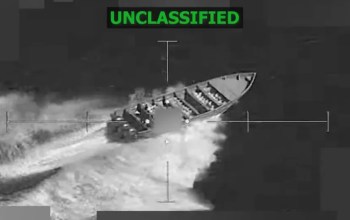
The Texas National Guard is preparing to withdraw its troops from Chicago, concluding their deployment in support of federal immigration enforcement operations. The decision comes as city and state officials assess the impact of the troops’ presence and plan for the next stage of immigration monitoring in the area.
The deployment, initially authorized to assist federal agencies with maritime and urban immigration enforcement, was part of a broader initiative aimed at targeting undocumented immigrants allegedly linked to criminal activity. Texas Guard units provided logistical support, security coordination, and manpower to federal officers conducting investigations and operations across key districts.
Chicago officials have welcomed the announcement of the withdrawal, framing it as a step toward restoring local control over law enforcement priorities. Mayor Brandon Johnson stated that city agencies are ready to resume full oversight of immigration-related enforcement in collaboration with community organizations. Local leaders emphasized that the Guard’s departure will allow municipal law enforcement to focus on balancing public safety with civil liberties.
During the deployment, National Guard personnel worked closely with federal authorities to enhance operational efficiency and protect officers in potentially volatile areas. Officials reported that the troops contributed to planning, security perimeter management, and logistical support, but did not engage in direct law enforcement or arrests. The deployment sparked debate over the role of military forces in civilian operations, with critics warning of overreach and potential civil rights concerns.
The withdrawal also aligns with logistical and operational timelines established at the outset of the deployment. Texas Guard officials confirmed that troops will return to their home state in stages over the next several days, with a focus on debriefing and equipment retrieval. Pentagon and state officials described the operation as successful, highlighting coordination between federal, state, and local authorities as a model for future multi-jurisdictional missions.
Community organizations and immigrant advocacy groups have responded cautiously to the announcement. While some welcomed the reduced military presence in the city, others urged continued vigilance to ensure that local enforcement respects constitutional rights and does not target vulnerable populations. Legal experts have noted that the end of the deployment does not end federal immigration oversight, but it does reduce the visible presence of armed forces in neighborhoods where tensions had previously run high.
The departure of Texas National Guard troops marks a shift in the federal immigration strategy in Chicago, emphasizing coordination with local authorities while scaling back direct military involvement. Observers suggest that the next phase will focus more heavily on targeted intelligence operations and community-based engagement rather than large-scale deployments of uniformed personnel.
As the city prepares for the transition, officials and residents alike will be watching closely to see how the balance between enforcement and civil liberties is maintained. The withdrawal underscores the challenges of coordinating federal immigration operations in urban areas and highlights the evolving approach of authorities in managing complex public safety initiatives.
Watch video below :












